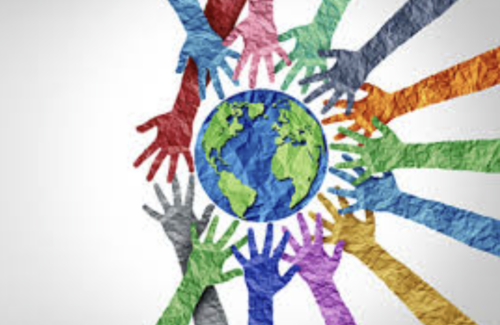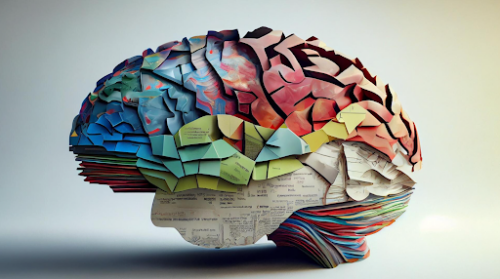
As AI adoption becomes increasingly widespread, researchers have been exploring how people develop human-like attachments to AI, which has both beneficial and risky implications.

Some of us spent our childhood building forts in the woods with our siblings and knowing the full history of everyone in our town. Others spent their early days with endless activities to choose from and the constant sound of police cars and ambulances whizzing by. These very different environments shape the world we know, but how much do they also shape us?

From cigarettes to vaccines, people moralize behaviors that seem to cause harm.

Do you have midterms or final exams coming up? We’ll go through a few different types of studying scenarios together to truly answer the question: How can you optimize your study sessions this semester? Spacing Effect: How often you study matters 1. St …

Have you ever done your assigned reading and thought, “I’ll definitely remember this, it’s in HUGE, BOLD LETTERS” and then failed to recall anything on your quiz the next day? This feeling of disconnect between what we think we know and what we actually know can be explained by the human ability to monitor and control our own learning, also known as metacognition.

How limited is our working memory capacity? While often described as fixed, research shows its boundaries depend heavily on the factors present during encoding and retrieval. Under the right conditions, we may be able to surpass what once seemed like hard limits.

When remembering a moment in life, does it ever feel shorter or longer than what actually occurred? Research shows that our brain’s chemistry might unlock the secret to why this is, and how that influences our memory of the event later on.

In this paper, we discuss how socioeconomic status (SES) influences child development through poverty’s interaction with stress, caregiving, and neighborhood context. We highlight evidence that toxic stress, reduced caregiving quality, and neighborhood disadvantage impair brain development, while policy interventions such as financial assistance can buffer these effects and promote healthier developmental trajectories.

In this blog post, we explore how cross-cultural differences impact the diagnosis and treatment of Autism Spectrum Disorder (ASD). While early intervention is key, cultural beliefs, stigma, and systemic disparities often delay diagnosis for children from non-white and minoritized communities. By examining global perspectives and research, this post highlights the need for culturally responsive approaches to ASD care.

Why do we choose not to tell other people information about ourselves? When is it “trauma-dumping” and when is it being friends?

In this article, I discuss four principles of analogy-based learning and teaching in the classroom that are crucial for students’ success in analogical reasoning.

Whether it’s heights, planes, or spiders, we each have that one fear that defies logical explanation, yet our brains insist on sounding the alarm. But why does this happen? And why aren’t we all scared of the same things?

How do we remember pivotal moments in history, and why do they feel so personal? By researching the psychology of memory, such as the phenomena of flashbulb and collective memories, we can better understand how cultural, emotional, and biological factors shape our recollections of the past.

A picture of the author, an eldest daughter, with her sister. Has your TikTok For You Page bombarded you with influencers proclaiming that you might suffer from Eldest Daughter Syndrome? The app’s algorithm can’t diagnose you with a mental illnes …

This article summarizes the effects of same-sex marriage policy in the United States. Legal same-sex marriage benefited the mental and physical health of LGBTQ+ people. Rates of marriage in the general population increased, divorce rates did not change, and attitudes about marriage have improved.

This article explores the psychological and social challenges in addressing climate change, emphasizing how evolutionary and cognitive biases hinder our responses to this global crisis. It delves into the complexities of human behavior and societal structures that make it difficult to enact effective climate action and considers how these obstacles might be overcome through increased awareness, collective effort, and adaptive thinking.

This article explores how aromatherapy can enhance cognitive functions such as memory, attention, and mental clarity, drawing on both real-world applications and its potential benefits for neurological health.

This article discusses and debunks myths and stereotypes about aging. Whether you’re young or old, learn how age-related stereotypes can benefit both yourself and those in your community.

In this article, the author discusses the role of music therapy in enhancing social and communication skills among individuals with Autism Spectrum Disorder (ASD). Music therapy provides a comfortable medium for self-expression and emotional regulation, particularly important during adolescence. The author highlights the universal appeal of music and its ability to help individuals with ASD express themselves in socially acceptable ways. The paper also discusses how group music therapy sessions can foster essential social skills like cooperation and teamwork, emphasizing music’s role in breaking down communication barriers and promoting inclusive social participation.

Alex Yeghikian (Author) and Sonya A. Ashikyan (Mentor) Walking around UCLA, you might hear the trill of a Bewick’s wren, the clicks of a California towhee, or the chirping of a dark-eyed junco. With a careful eye, you might even see one perched on a br …

Here, we discuss how mental imagery might affect intelligence.